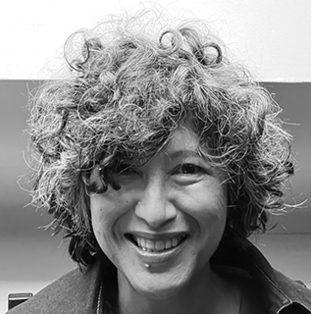From our house in Athlone on the Flats go up Kromboom, Crooked Tree, toward the mountain and onto the M3, then turn left for the road along the sea or right for the shorter route over Ou Kaapse Weg to get to Cape Point, the furthest part, the part where my grandparents camped at Buffelsbaai, Buffalo Bay, before it was made into nature. There they fished and swam and made a fire to cook the kabeljou and hardes and in the photos, time didn’t seem like time. Even if their way of standing shoulder touching shoulder and answering to the camera, even if their brylcreemed hair and tweed jackets weren’t from the forties, the size of the fish my grandfather caught told me they were in another world, those fat, abundant fish that are a dream of the sea now.
This time I chose the halfmoon turn up the mountain and the crags of Silvermine, some straight as blocks of slate and others stubbled and stacked but with something not of nature about them, as though they were people who had just stopped moving and had arranged themselves for us to look at, more formal than they would have been otherwise. Once I drove this way with my husband and he said, this place reminds me of Angkor Wat, and I laughed. How could this backup route we took when we didn’t have time to go along the sea, the one we hurried through on the way to the Point, how could it be compared to temples, to exalted ruins?
One day my aunt, visiting Athlone from Uitenhage, the town 500 miles away on the southeast coast where I was born, asked, Haai, maar wat is hierdie klein bergie in julle agterplaas? Hey—haai is not quite hey, but English doesn’t have a phatic for the affectionate astonishment of a sound that isn’t a word but a beginning—so, Hey, but what is this little mountain in your backyard? She meant the small rise called Table Mountain, which she couldn’t recognize because my grandparents were removed from its slopes to the lee of it, to here, behind its famous face and the tablecloth of cloud falling over its steep slopes. Unknowable from this angle.
On the Flats, everything is background. It’s the place you leave behind to get anywhere. I left to go to school because the schools were still in the places where people lived before were removed. I left Athlone to go to the University of Cape Town on the lower slopes of Devil’s Peak, where the land was bequeathed by Cecil John Rhodes. Before students protested, his statue used to look from the University across the Flats all the way to Cairo. Up on Jameson Steps, you could sit and see the pepper pot towers of the cooling station just down Thornton Road from my mother’s house. I left Athlone to fall in love and leave forever.
I know exactly when I started to notice the world, three streets from my house, when I turn left toward the mountain. From Athlone, Lansdowne—names of minor British royals banished to the Cape now pasted over the land—from the Flats, you always have to aim toward the ridge, and once you reach it, cross a kloof or neck, always go toward some impermeable barrier that demands you ford it. That is the story that the Flats was always telling me. How to leave, how to aim toward the mountain. But coming back, flying to Cape Town, you land in the Flats, have to drive through its unnerving sameness, its absence of a focal point, so you hold the mountain ahead of you like a direction through the present tense.
What is the point of this leaving and returning, this old circle from the Flats to the peak it doesn’t recognize, and then back?
I leave again for the mountain that someone from elsewhere showed me was smaller and closer than I knew. And then I come back. Back to the home I knew as background. The Flats with its 200 square miles of levelness, with mountains to the north and east and sea to the south, that I abandoned for school, then university, then love. In the backyard where my aunt stood looking at the mountain, fenced in by unpainted grey vibracrete walls, the only color the tired grass and the weathered side of the neighbor’s garage, a speckled white tinted by the low sun and smudged with the shadows of sparrows, the most common of birds, unnoticed birds, darting at something in the grey sand then flitting upward to meet themselves at the top of the wall. The sound is of background fluttering, murmurs, phatic noise. Everything is unimportant, passing. I am standing next to her, young, invisible—time is tangled and striated and doubled—as I see what I couldn’t see at the beginning, the ground on which she stood when she called the mountain ours.
Copyright © 2026 by Gabeba Baderoon. Originally published in Poem-a-Day on February 10, 2026, by the Academy of American Poets.






